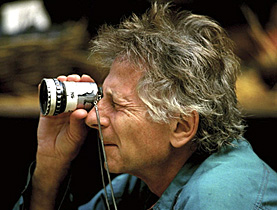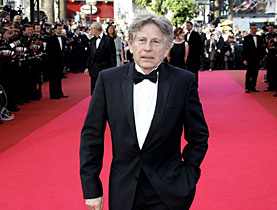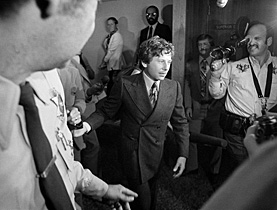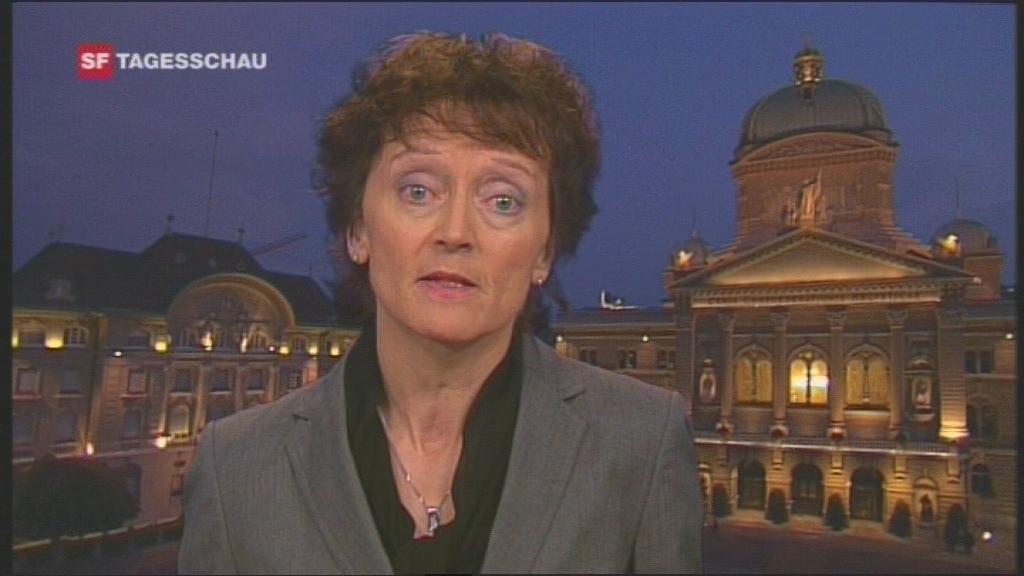Polanski appeals against extradition custody

Lawyers representing film director Roman Polanski have filed a motion with the Swiss Federal Criminal Court requesting that he be released from custody.
The court said in a statement Tuesday that it would make a decision on the matter “in the next weeks”, dampening expectations that he would be freed anytime soon. Any verdict is subject to appeal from both sides.
The renowned Polish-French director was arrested on Saturday as he arrived in Zurich to receive a film festival award for his life’s work.
Polanski, director of Chinatown, Rosemary’s Baby and the Oscar-winning The Pianist, is being held in prison awaiting possible extradition to the United States in connection with an outstanding 1977 statutory rape case.
House arrest?
The Federal Criminal Court will now decide on the legality of the American request for Polanski’s detention, Swiss justice ministry spokesman Guido Balmer said on Tuesday.
The ministry did not rule out the possibility that Polanski, 76, could be released on bail under very strict conditions that he doesn’t flee Switzerland.
Balmer said the court theoretically could confine Polanski to his chalet in the wealthy Swiss town of Gstaad, but noted that “up to now there has never been a case of house arrest in such a situation”.
“Police trap”
Leading figures from the film-making world – including fellow directors Woody Allen, Martin Scorsese and David Lynch – have signed an international petition calling for Polanski’s release.
The petition was launched by the prominent French authors’ society SACD. The signatories judge it “inadmissible that an international cultural event [Zurich Film Festival] paying tribute to one of the greatest contemporary film makers could be transformed into a police trap”.
On Tuesday Swiss Foreign Minister Micheline Calmy-Rey defended Polanski’s arrest from a legal point of view, but criticised the circumstances of his arrest.
“Unfriendly”
“It is seen as unfriendly and might show a certain lack of finesse to invite him to a festival and then arrest him,” she told journalists.
She dismissed allegations that Switzerland was doing a special favour to the US to win their respect.
Calmy-Rey said there was no other option but to act and all citizens were treated equally under Swiss rule of law.
She added that she had explained the legal system in conversations over the past few days with her French and Polish counterparts, who have pressed for Polanski to be released on bail.
Regular visitor
Although Polanski is a regular visitor to Switzerland and has a holiday home at the resort village of Gstaad, a Swiss official said this was the first time that law enforcement authorities had solid information from the United States concerning his flight and arrival time so they could make an arrest.
The Oscar winner had fled the US in 1978 on the eve of being sentenced for drugging and having sex with a 13-year-old girl during a photo shoot.
He has lived ever since in France, which, like Switzerland, will not extradite its own citizens to the US. In the past three decades he has travelled extensively in Europe.
Under Swiss law, the United States has 60 days to file a formal extradition request.
That request for Polanski’s transfer must first be examined by the Swiss justice ministry, and once approved appeals can be lodged with a number of courts.
swissinfo.ch and agencies
Born Raymond Polanski to Polish-Jewish parents on August 18, 1933, he spent the first three years of his life in Paris before the family returned to Poland.
He escaped from the Jewish ghetto in Krakow in 1940 as the Germans sealed it off. His mother later died in an Auschwitz gas chamber.
His first full-length feature film after graduation, Knife in the Water, won a number of awards.
In 1969, Polanski’s pregnant wife, actress Sharon Tate, and six others were brutally murdered by followers of cult leader Charles Manson.
Polanski won a best director Oscar for The Pianist in 2003 as well as the Cannes film festival’s coveted Palme d’Or for the same film the year before.
Polanski’s arrest in Zurich was prompted by a request from the United States Marshals Southwest Regional Fugitive Task Force,
which includes the Los Angeles Police Department.
The US warrant is linked to Polanski’s arrest in the late 1970s when he was charged with giving drugs and alcohol to a 13-year-old girl and having unlawful sex with her at a photo session at Jack Nicholson’s Hollywood home.
Polanski maintained the girl was sexually experienced and had consented. He spent 42 days in prison undergoing psychiatric tests but fled the country before being sentenced.
He recently sought dismissal of his case on the grounds of misconduct by the now-deceased judge who had arranged a plea bargain and then planned to renege on it.
Earlier this year the woman involved also filed to have the charges dismissed.

In compliance with the JTI standards
More: SWI swissinfo.ch certified by the Journalism Trust Initiative



You can find an overview of ongoing debates with our journalists here. Please join us!
If you want to start a conversation about a topic raised in this article or want to report factual errors, email us at english@swissinfo.ch.